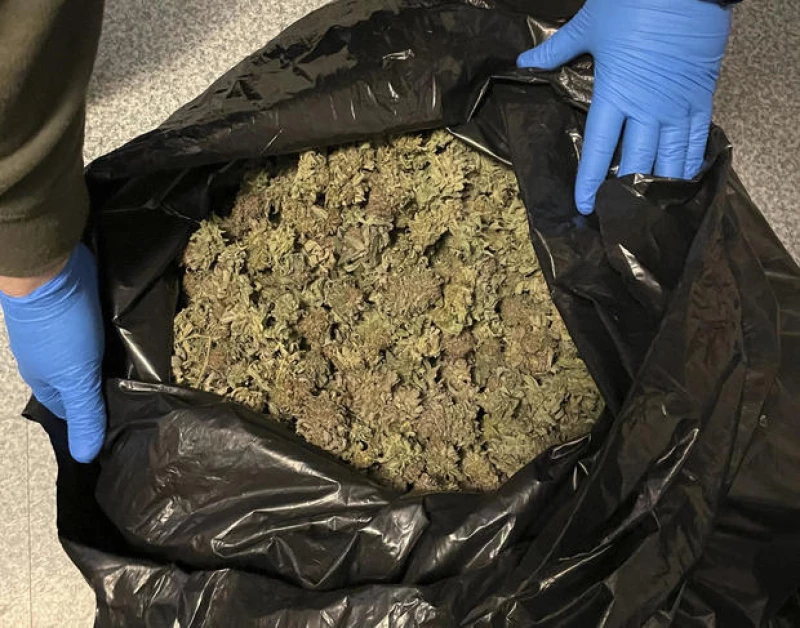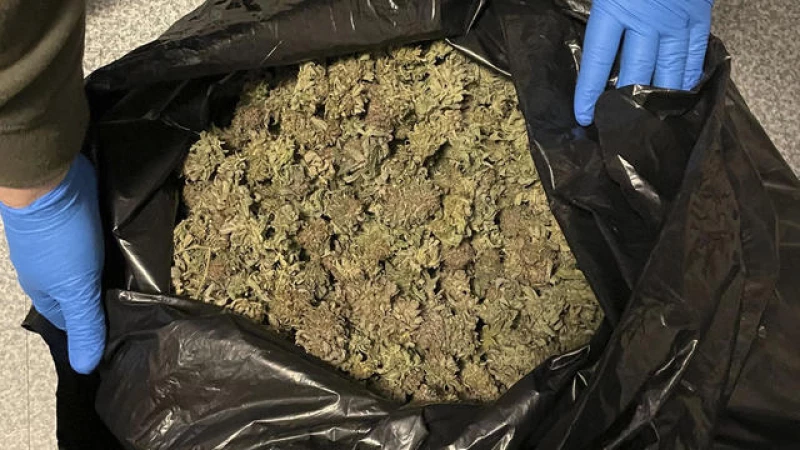Law enforcement was alerted to an underground cannabis operation in rural Maine due to a residence's excessive electricity usage, covered windows, and the distinct smell of marijuana.
The discovery led to a raid on the property, resulting in the confiscation of nearly 40 pounds of processed marijuana. This incident highlights a concerning trend where foreign nationals exploit the legalization of cannabis in certain U.S. states to produce marijuana for the illicit market.
Attorney General Merrick Garland informed the Senate Appropriations Committee that the Drug Enforcement Administration is currently investigating international criminal organizations involved in illegal marijuana cultivation across approximately 20 states, including Maine. This revelation came in response to a query from Republican Senator Susan Collins of Maine.
In February, a bipartisan group of 50 U.S. lawmakers, including Senator Collins, penned a letter to Garland seeking clarification on China's involvement in unlawful marijuana activities within the country.
Authorities have identified approximately 100 illegal grow operations in Maine, including one in Passadumkeag, situated about 60 miles north of Bangor. Since June, around 40 search warrants have been issued in relation to these operations.
In Passadumkeag, Xisen Guo, a naturalized U.S. citizen originally from China, has been charged with converting a house into a sophisticated illicit grow operation, as revealed in recently unsealed court documents.
Guo, facing federal drug charges, was denied bail on Friday, marking the first federal charge in such a case in Maine. A detention hearing has been set for Monday.
A joint effort involving the Internal Revenue Service, Department of Homeland Security, FBI, DEA, and local law enforcement is underway to investigate and dismantle the illicit grow operations in Maine, according to Garland.
Maine has legalized adult marijuana consumption, but growers are required to obtain state licenses. Court documents indicate that Guo was running an unlicensed operation, as stated by the Maine Office of Cannabis Policy.
Illegal grow operations have been emerging across the United States in recent years. In 2018, a Seattle woman was arrested by U.S. authorities, leading to raids and seizure of thousands of marijuana plants linked to an operation with connections to China. In Oklahoma, officials discovered that individuals in China and Mexico were operating illegal grow operations under straw ownership after the state legalized marijuana for medical purposes in 2018.
The legality of marijuana consumption and cultivation in those states tends to provide cover for illegal grow operations, which may draw less attention, officials said. The marijuana is then trafficked in states where it's illegal.
In Maine, U.S. Attorney Darcie McElwee said thwarting illegal growing operations with international connections is a priority for law enforcement, "and we will continue to marshal every tool at our disposal in this effort as appropriate."
Law enforcement officials know the tell-tale signs.
Police zeroed in on the Passadumkeag operation in part because of the home's utility bills reviewed by deputies. After the home was purchased for $125,000 cash, the electricity use went from about $300 a month to as high as nearly $9,000, according to court documents.
That's consistent with heat pumps, costly lighting and other gear needed to grow marijuana, investigators said. The home owner, a limited liability company, upgraded the electric capability to double what is found in a typical Maine home, according to documents.

Raymond Donovan, the former chief of operations for the DEA, told CBS News earlier in April that unusually high electricity bills are one of the easiest ways to spot an illegal grow operation.
Illegal Marijuana Grow Houses in Maine Drawing Attention for High Electricity Usage
Authorities in Passadumkeag, Maine, recently discovered an illegal marijuana growing operation that was consuming a significant amount of electricity. According to CBS News, the operation was using an excessive amount of power, prompting suspicions from law enforcement.
"These locations consume huge amounts of electricity," a law enforcement official told CBS News. "In order to accommodate that amount of energy, you need to upgrade your electrical infrastructure — and significantly. We're getting into specialty electrical equipment that is very scarce and hard to come by, especially in the state of Maine."
A similar illegal growing operation was busted in Machias, Maine, where authorities found 2,600 plants and 100 pounds of processed marijuana. The operation in Machias was also using a significantly higher amount of power than a normal residence.
Machias Police Chief Keith Mercier stated, "Once we subpoenaed the power records from the power company, [it] was pretty hard to explain why somebody anywhere would be using that amount of power." The grow house in Machias also had characteristics such as shuttered windows and a strong odor.
Law enforcement agencies, ranging from local police to federal entities like the FBI and DEA, have been actively working to shut down these illegal operations. According to CBS News, "dozens of operations" have been closed in recent months.
"The possible involvement of foreign nationals using Maine properties to profit from unlicensed marijuana operations and interstate distributions makes it clear that there is a need for a strong and sustained federal, state and local effort to shut down these operations," she said.
Law enforcement officials also continue to investigate who is directing the operations and where the profits are going, she said.







